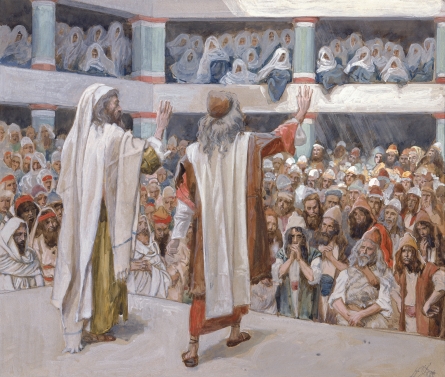Each New Year I take a pause. I get out my journal, and I write. It’s a way to remember, to survey the total, and to find a renewed focus.
As part of this practice, I wrote out some thoughts about the church music ministry I lead. I asked, “Basically, what is it that I’m doing—and why?”
I came up with this vision for worship ministry in 2016:
A worship leader’s visible task is the planning and performing of music. But his main responsibility is less visible. It’s the same as that of all ministers: to seek God’s will in prayer and in studying and proclaiming the Bible (Acts 6:4).
From this basic way of life comes another responsibility: to build relationships with people. To live as my prayers and Bible reading require, relationships are key. As I do these things, I also have a unique assignment: to take leadership in shaping our music program.
Key Takeaway #1:
Your ministry is of prayer and the Word first, and then of personal relationships, and then of music.
When we understand the above, we will naturally seek to convey Scripture to our congregation. How much Scripture can I put in the hearing of my church? I don’t have anything more valuable to say than what God has said. My job is not to filter God’s Word or to share a handful of favorite verses. My job is to show people who God is. Mainly, I do that by quoting him.
My own life must not detract from the message. But my life is not the message. The message is the message. So I share those verses in Scripture that most powerfully convey who God is, what God has done for us, and how he wants us to worship him.
Worship leaders, we shape how our congregation views God. We remind them of God’s power, his goodness, his righteousness, his justice.
Key Takeaway #2:
What is at stake on Sunday morning? People’s view of God.
Joseph Crider, my seminary professor taught me this. I will not forget it.
What is the test of right worship? Dr. Crider pointed out: it is changed lives. People who are truly worshiping God on Sunday are truly obeying him on Monday. That’s why I’ve set this as my goal: to see people acting on the truth of the words that we sing. And that’s why it’s so important that our songs have words worth singing.
Key Takeaway #3:
You get to put words in the mouth of the congregation. Let them be worthwhile.
We do not have unlimited time. How many words will we put in the singer’s mouth this week? Several hundred? In that small space, did we include something about God’s transcendence? His righteousness? His existence as a Trinity? Did we include anything about our confessed sin, covered by the blood of Jesus? Did we sing of the righteousness we have by faith? Did we sing of our hope in heaven?
Let our words be recognizably and distinctly Christian. No pagan should feel he can honestly sing the words we sing. Let our words be doctrinal. No visitor should leave our worship service without knowing our beliefs. Our very purpose in corporate worship is to tell one another of our common faith—and our common joy in that faith.
Key Takeaway #4:
Focus your worship time on the joy of the gospel.
To the Christian, the gospel is joy. It is the story we do not tire of telling.
The gospel is not merely an on-ramp to Christianity, as if it were something we affirm once and then move beyond; the gospel is the entire road. Our entire Christian development—from our journey of sanctification, to our mission to create disciples, to our songs of worship—all these things should continually orient around the fact of the gospel: that Jesus died to save sinners such as us.
What is my vision for worship ministry? That hearts would be more fully surrendered to the Lordship of Jesus. Let many call Jesus Lord. And let it be in part because of:
- The time the worship leader spent with God.
- The time he spent with others.
- The time he spent on music.
- The Scripture he read on Sundays.
- The doctrinal songs he chose.
- The gospel he remembered.
- The joy he celebrated.
